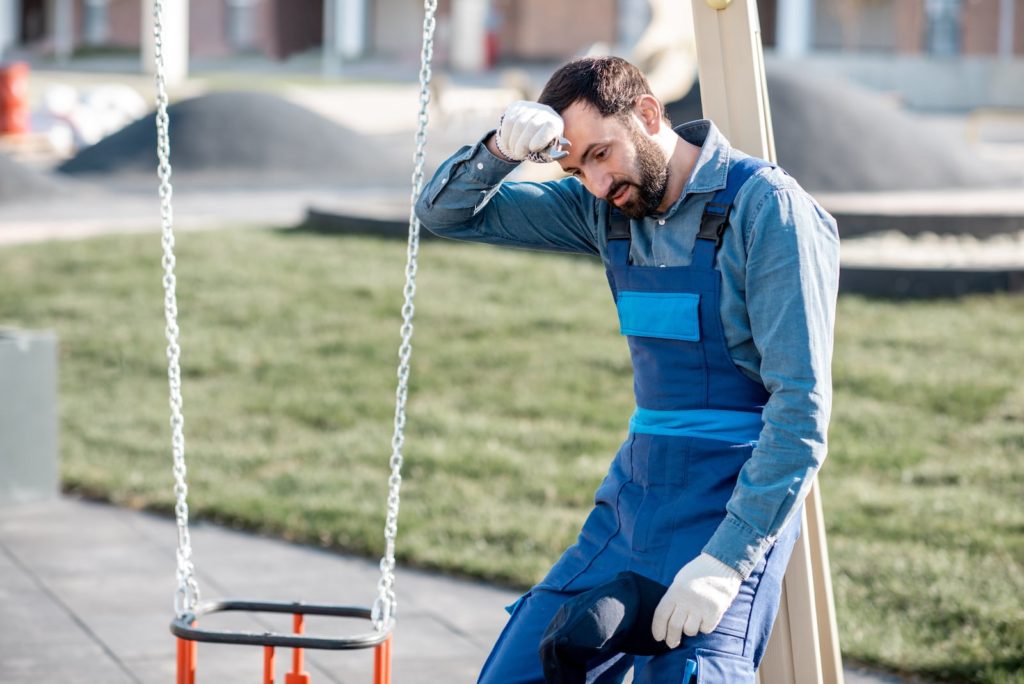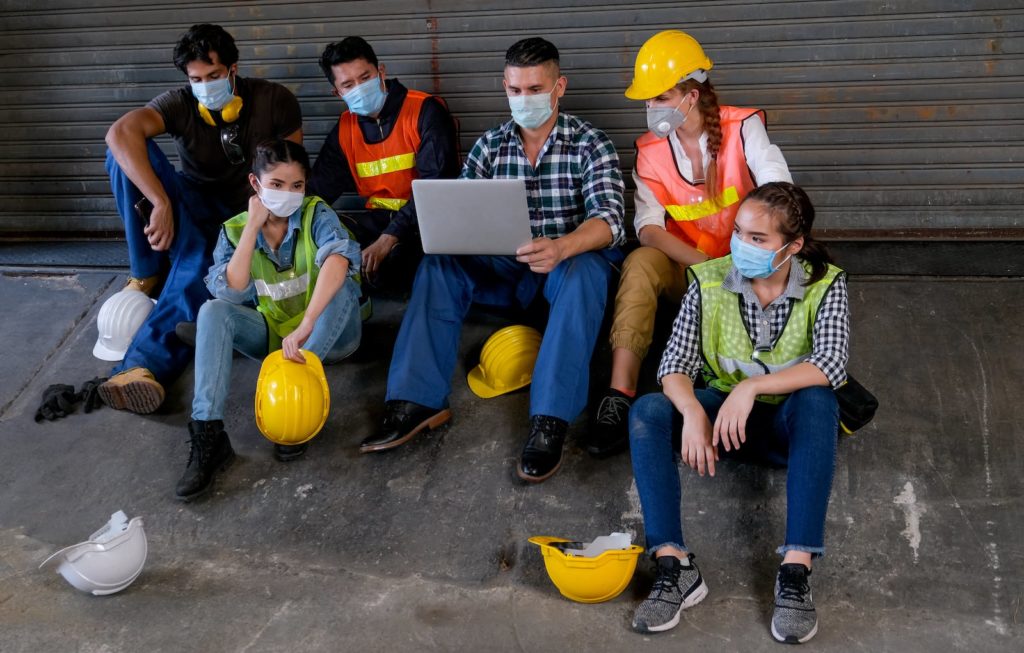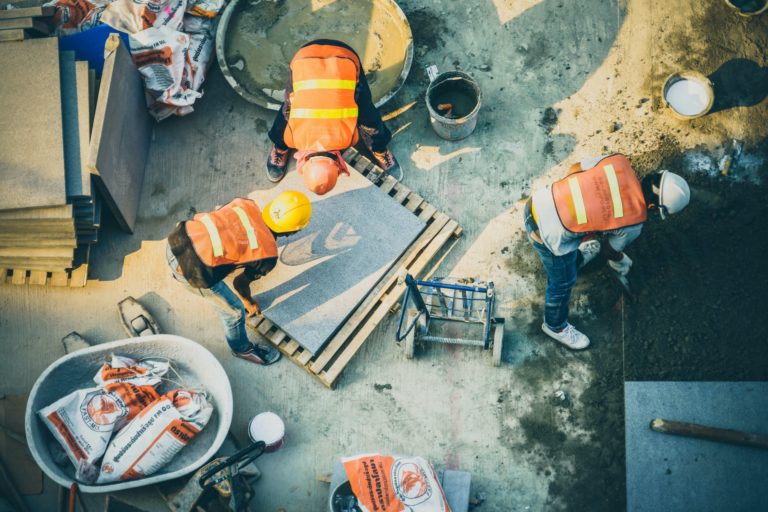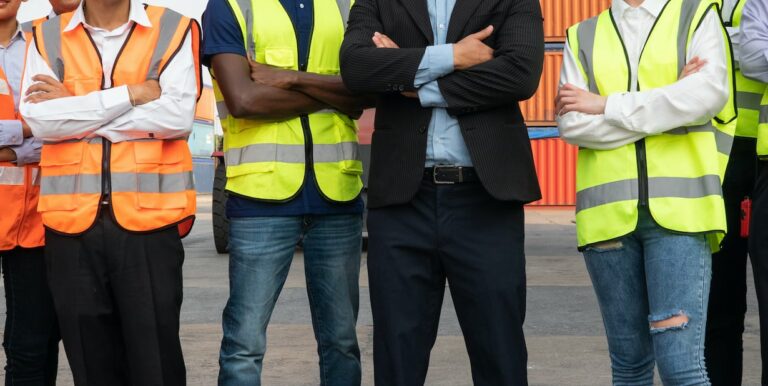How can we tackle poor mental health in the Construction Industry?
Poor mental health is alarmingly common in the construction industry, and it can have devastating consequences.
Anyone who’s worked in construction will understand that our day-to-day operations don’t exactly lend themselves to a stress-free environment. With high pressure, tight timelines, specialist work, and travel thrown in the mix, we’ve all felt the strain. Often, we shrug it off, push the feeling to the back of our mind, and pretend nothing is the matter.
We’ve got to make a change.
Mental health issues can often manifest into physical as well as emotional issues that can destroy an individual’s wellbeing, impact their family and friends, and ripple out to colleagues and the wider organisation.
Our industry isn’t one that’s known for talking about the way we feel, but when 83% of construction workers experience mental health issues, isn’t it about time we started to acknowledge that mental health should be a priority?
Why is poor mental health a problem in the Construction Industry?
Despite a growing awareness of the importance of good mental health in wider society, there’s a lot of work left to do to help improve mental health within the construction industry.
In an industry that’s often stereotyped as being packed full of physically fit, ‘macho’ men, it’s easy to see why we aren’t famed for being talkers.
There are a number of factors that contribute to the poor mental health of construction workers, including:
- The ‘macho’ construction worker stereotype
- The time pressured environment
- The physical strain of construction roles
- The short term nature of many construction projects
- Low pay
In order to tackle poor mental health in construction, our industry must become more aware of our shortfalls, and push for a greater awareness of how we can improve mental health.

Is mental health important in construction?
Mental health is important in all sectors of work. Good mental health will lead to happier workers who are more productive, more focused, and more committed to their work. Ultimately, improving the mental health of construction workers can lead to huge benefits – and increased profits – for everyone involved in the construction chain.
Mental Health Statistics in Construction
Sadly, a quick Google of ‘mental health and construction’ will lead you to a barrage of statistics that makes it clear just how much of an issue mental health has become within the construction industry.
- The industry has some of the worst rates of suicide in the UK, with male construction workers 2.7 times more likely to commit suicide than the average person.
- 26% of construction industry professionals thought about taking their own lives in 2019.
- According to the Centers for Disease Control, construction has the highest suicide rate of all industries, at 53.2 suicides per 100,000 workers.
Much of the research that’s been done on the mental health of workers within the construction industry puts a significant amount of blame on the way the industry operates.
- A report from the Building Engineering Services Association (BESA) and Electrical Contractors Association (ECA) found that 90% of construction bosses have suffered from mental health problems as a result of late payments.
- 97% of construction industry professionals reported being under stress at least once a year and highlighted several work factors that contributed to their poor mental health.
Stress, anxiety, and depression account for one-fifth of work-related illnesses, resulting in 70 million days off sick per year at an estimated annual cost of £70bn-£100bn according to the National Building Specification.
Are construction workers depressed?
Arguably, statistics don’t give us the full picture, as the data we have is only relevant to the proportion of construction workers who have completed the surveys. However, it wouldn’t be out of the question to suggest that if more construction workers were consulted, there would be an increase – not decrease – of mental health problems associated with the industry.
There are indications that the ‘‘macho stereotype’ often associated with construction workers discourages workers from discussing any mental health issues for fear of it impacting their work opportunities.
Why should I be concerned about the mental health of construction workers?
Whatever your position in the construction industry, your livelihood relies on construction workers getting the job done. Whether you’re a project manager, managing director, or owner of a construction recruitment firm, your successes are down to your construction workers.
The mental health of individual workers is crucial because it can have an impact on your workforce more generally. When workers are struggling with their own mental health, they are more prone to mistakes that could have awful consequences in an industry as dangerous as construction.
Is construction a particularly stressful industry?
Unlike other sectors, construction roles are often short-term and project based. Without the stability of a permanent position, it’s inevitable that construction workers feel additional pressure.
As well as the format many jobs take, the work itself is strenuous and physically demanding. Certain roles can demand specialist skills that take years of practice, skill, and a high level of concentration.
The hours of work can be long, and when travelling for work, daily commutes can put pressure on relationships at home. If working away from home is an option, workers may feel an even greater strain when they are separated from family for long stretches of time.

How can the construction industry improve mental health?
One of the first ways the construction industry can improve mental health is by acknowledging that mental health is an issue in our sector.
Mates in Mind is a charity that exists to support construction organisations and help them improve the mental health of their workforce. During their first two years of business, they enabled ‘hundreds of organisations within construction to transform the mental health culture of their workplaces’. Mates in Mind do a great job of highlighting and improving the mental health of those working in construction, but this is just the tip of the iceberg.
Individual organisations need to encourage conversations around mental health, and help workers understand that support is there for them, should they need it.
How can you spot signs of poor mental health within your workforce?
In order to see poor mental health within your workforce, leaders have to create open communication channels with their workers.
A specific person designated to take care of the wellbeing of workers may be an option, but a more subtle approach would be distributing information to workers that signposts workers to agencies that can help them improve their own mental health. Posters, newsletters, and emails can all be used to help spread the word.
Tell tale signs of mental health issues

As well as direct communication lines, there are some indicators that managers and leaders should look out for. Workers who are repeatedly late, absent, or lacking motivation could be struggling with their mental health. Physical separation from colleagues should also be noticed.
Think about surveying your current workforce about how they feel. At best, you’ll be able to get a general overview of the mental health of your workers. But if nothing else, it’ll give you a good idea of how many of your workforce feel comfortable sharing information with you.
What can we do to tackle poor mental health within the construction industry?
As a leader within construction, there are several changes we can make to help improve mental health within our sector.
Prioritise construction workers.
By considering the needs of your workers as well as the needs of your business, you’re more likely to create a culture that will retain workers. Thinking about placing workers in roles that are physically and geographically suited to their skills and location will reduce unnecessary stress.
Communicate clearly.
Whether you communicate through email, text or phone call, it’s imperative that you communicate clearly with your workers. In an industry that is so dependent on short term projects, you can help by managing expectations. When workers realise that you will give them all of the information they need upfront, they are less likely to become stressed later on down the line – or when they realise that the job is only secure for a few weeks.
Understand where workers can find support.
Not all organisations are large enough to tackle mental health issues internally. If that’s the case, you need to know exactly where workers can go to find the support and advice they need to deal with mental health issues. Making this information easily accessible, without workers needing to ask for it, will make workers more likely to reach out for support as and when they need it.
How does your organisation handle stress in construction?
If you have no idea how your construction workers would fare in a mental health survey, it’s worth considering adding to your current processes, and making small changes towards becoming a more empathetic and aware employer.
At P.I.E.R, our process is people focused. By encouraging our clients to engage with us as early as possible in their project timeline, we can ensure our clients receive skilled and committed workers who are suited to the work required.
Our workers know exactly what to expect, and our clients receive high quality tradesmen who will continue to work for the duration of their project. Clear communication and early engagement ensures workers feel valued and our clients are always happy with excellent results.
Contact P.I.E.R for more information about how to address poor mental health in your workforce.
Reference
- https://constructible.trimble.com/construction-industry/mental-health-in-construction-stats
- https://www.ciob.org/industry/policy-research/policy-positions/mental-health-wellbeing
- https://www.ciob.org/industry/policy-research/policy-positions/mental-health-wellbeing
- https://constructible.trimble.com/construction-industry/mental-health-in-construction-stats
- https://www.pbctoday.co.uk/news/health-safety-news/mental-health-in-construction-4/83876/
- https://www.ciob.org/industry/policy-research/policy-positions/mental-health-wellbeing
- https://igpp.org.uk/event/Mental-Health-in-Construction
- https://www.ehstoday.com/construction/article/21171410/the-biggest-danger-in-construction-work-is-poor-mental-health
- https://www.matesinmind.org/what-we-do/sector-specific-support/construction-industry
- https://www.matesinmind.org/
- https://www.ukconstructionmedia.co.uk/features/mental-health-construction-industry/#:~:text=Know%20the%20signs&text=increased%20lateness%2C%20absenteeism%20and%20presenteeism,isolation%20from%20peers







